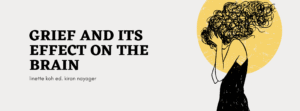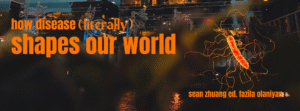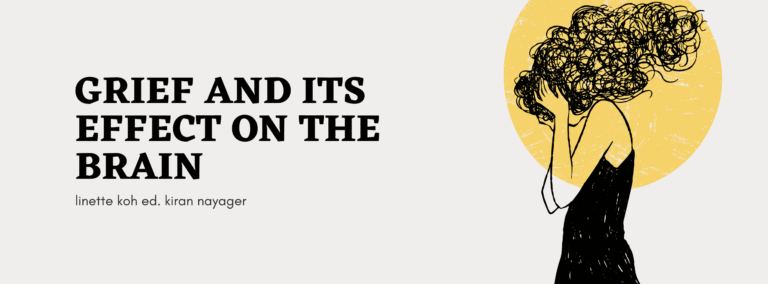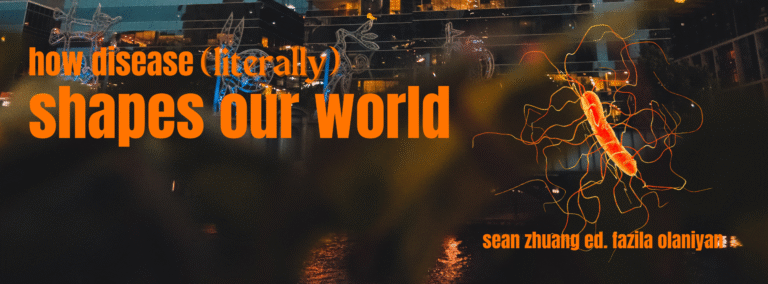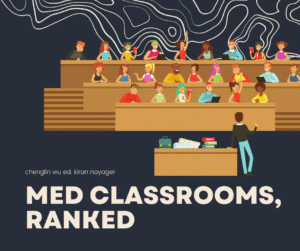
By Ivan Shen
Recently, having found myself washing my hands more frequently than I otherwise would, I took a chance to actually read the labelling on my soap. Of course, we are all familiar with the common phrase “It kills 99.9% of germs”. It is always that number 99.9%, never 100%. And perhaps on this day, I felt a bit sentimental and the thought occurred to me ‘How lonely must that last 0.1% of germs be?’.
The perfectionist that may or may not reside in everyone obsesses over absolutes. Throughout history, humans have chased this concept of the absolute: absolute reign over the world and absolute understanding of the universe we live in. We are obsessed with one number: 100%.
However, it is inevitable in medicine, a field where we tend to discuss when things go wrong rather than when things are going well, that we would regard 99.9% as an achievement. We are all victims to this mentality. How often do you hear a lecturer say something along the lines of “The mortality of this disease is 1 in 25,000, which is extremely low” or “We only get approximately 40 new cases every year?” Now, this is by no means a slight towards anyone who says statements like these. Again, we are all victims to the numbers.
While numbers such as a 0.1% prevalence or a 99.9% survival rate are fantastic achievements representative of all the research, clinical work and public health intervention geared towards a particular ailment, it is also important not to forget to acknowledge the extremely small minority. As rational thinkers, we always imagine ourselves to be the 99.9% or the overwhelming majority, and unfortunately it is only when we do fall into the other category that we truly begin to understand the loneliness and denial we face as the 0.1%.
A similar concept has been explored in the movie Mr. Nobody. In the film, humanity has achieved mortality and Nemo Nobody is the last mortal man on Earth. As he is the 0.1%, we should try and understand how he may feel, because it is just like being the last person on Earth with a treatable disease.
Now, of course, utilitarianism and public health perspectives tell us we shouldn’t focus our resources on something that is already 99.9% conquered. I am not trying to say that. The unfortunate reality is we simply aren’t in a position to achieve the ideal 100% yet, when we are ravaged by complete unknowns and difficult problems everyday. But what I believe we should do, is to take a moment to think about the 0.1%, because they are not just a number. They have their own unique stories, their own reasons and choices as to why they live with the disease or condition they have and cannot get it treated. We must understand that not only do they live with this condition, but perhaps they may also live with a great sense of isolation, as they cope with a rare ailment that no one really understands or are afflicted with a curable disease but do not have the resources or money for treatment.
They are more than that number, because their stories may be the most fascinating, unique or heartbreaking. A boy who lives his entire life in a bubble, a girl who must face her own death before she turns 20 and a man who must monitor his vitals everyday because he cannot feel pain.
But we have achieved 100% before. We did it with smallpox. If we search in Google, the Wikipedia page reads “Smallpox was an infectious disease…”. And perhaps 100 or 1000 years from now, we will continue to expand our use of past tense. Influenza was, cancer was, diabetes was. Disease was.
But for now we must focus on the present. For many of us who are 20-29 years old the death rate of coronavirus is 0.2%. As much as we’d like to think we will fall into the 99.8%, why should we play numbers games with our own lives and our own stories? And why should we get to play numbers with our elderly, immunocompromised and pregnant women whose death rate is extraordinarily higher. In a period of time where we are thrown numbers on every news report and article, it is now more important than ever to look past the numbers and start thinking about our own lives and how our actions affect our story as well as the ones around us. We must hold ourselves accountable so that perhaps we can say in the future, an epidemic was.


